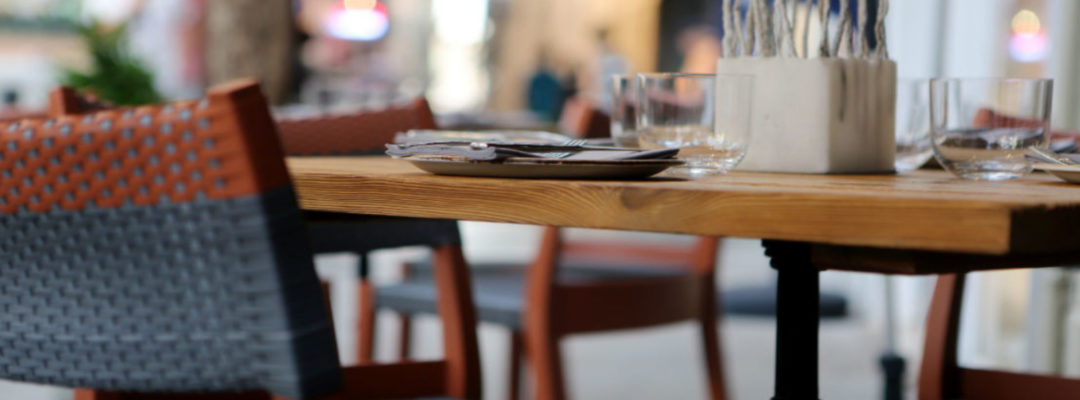HOW TO BUY A RESTAURANT, BAR OR NIGHT CLUB USING A BROKER
The following questions are answered within the Buyer's Helpful Hints.
Helpful Hints
What type of business or restaurant are you looking for? Do you want to work 20 or 60 hours a week? Do you want to be involved in the business or simply be the owner? How much money are you willing to spend for a building? Equipment?
Submit our Buyer's Questionnaire.
Who do I call?
Unless a business is already closed, you will have to contact a restaurant or business broker for information on what restaurants or businesses are for sale. Your local newspaper should have a "Businesses for Sale" section in the classifieds. Be aware, however, that most times you will be required to sign a Non-Disclosure Agreement explaining that you will not share information regarding restaurants/businesses for sale with anyone other than the interested parties.
A Non-Disclosure Agreement must be signed by you, the Buyer. This will assure the Seller that the financial information and the mere fact that the business is for sale will be held in the strictest of confidence.
You, as the Buyer, will need to provide the restaurant/business broker with personal financial information. Unfortunately, everyone who would like to own a restaurant or business is not necessarily a qualified Buyer. However, this determination is left up to the restaurant/business broker.
After a restaurant/business broker has determined you are a qualified Buyer, and you have signed the Non-Disclosure Agreement, they will provide you with information on various restaurants/businesses for sale that most closely meet your criteria.
Initial Visit - You, the Buyer, should dine or have a drink at the business that you are considering. DO NOT mention to anyone that you are evaluating the business or that the business is for sale. You can be an inquisitive customer checking out the bar, dining room, restrooms and kitchen without attracting attention to yourself.
Showing - If your interest continues, your restaurant/business broker will set up an appointment for you to tour the restaurant/business and talk with the owner. Your broker will be present at all meetings. At the time of the showing, you may ask the seller specific questions about the business. These showings are generally scheduled during non-business hours to protect the Seller's confidentiality.
There are two ways of determining the value of a restaurant/business.
Assets Method: This method includes only the lease, leasehold improvements, furniture, fixtures and equipment. It does NOT include the name, menu or concept as part of the sale. Using this method, little or no emphasis is put on the financials of the business. The Assets Method uses no standard formula in determining value. Instead, valuation is based on the restaurant/business broker's knowledge of the market and comparable sales.
Cash Flow Method: This method includes the lease, leasehold improvements, furniture, fixtures, equipment, name, menu, and concept as part of the sale. Emphasis is put on the yearly adjusted cash flow. Adjusted cash flow is determined by taking the net profit on the tax return or on the year-to-date income and expense statement and adding back the Seller's personal expense items not applicable to you, the Buyer. Once the yearly adjusted cash flow is determined, a multiple ranging from 2 1/4 to 3 is used to determine the value of the business. This multiple is determined by factors which include, but are not limited to, lease value, the potential upside of the business, the quality & quantity of the leasehold improvements, fixtures and equipment, whether the operation is a franchise and whether the operation is a full service or self-service operation.
After evaluation, the next step is to make an offer for the purchase of the business. This includes writing a purchase contract and depositing earnest money with the listing brokerage firm, which will be placed into an escrow account. Your offer will be contingent upon the following items:
Once the contract has been drawn up, and the earnest money has been deposited with the listing brokerage firm, the broker will present your offer to the Seller. The broker will give the Seller background information on you, your previous experience, your perspective and how you arrived at the price, terms, conditions, etc. The Seller will also be provided with your financial statement, credit report, resume and business plan.
The Seller will either accept, reject or counter your offer. In any case, the broker will contact you as soon as he/she has been notified of the Seller's decision. This may take anywhere from a few days to a week depending on the Seller. When you, the Buyer, have received notice of the Seller's response, you may either accept, reject or counter the Seller's offer.
When both parties involved have agreed to all of the terms and conditions of the sale and have signed all of the amendments and counteroffers, the offer becomes a Purchase Agreement. At this time, there may still be contingencies or conditions to be satisfied before the closing can occur.
The listing agent will provide you, the Buyer, with copies of the financial records of the business for your and your accountant's review. You, the Buyer, with your broker's help, will be responsible for arranging for an inspection company to inspect the building, equipment and HVAC system.
As your requirements are met, existing contingencies in the Purchase Agreement are removed. Once all the contingencies are removed, the Purchase Agreement becomes a binding agreement and the deposit is increased and the escrow is opened.
The closing date or the close of escrow is the date when title to the business and normally physical possession of the business is transferred to the Buyer. The closing papers are signed in the Buyer's Attorney's office or through the mail prior to closing date.
Inventory arrangements are made for you, the Buyer, and the Seller and/or inventoty service to take a physical inventory as it applies to the value of the saleable items (food, beverages, etc.) and nonsaleable items (fixtures, equipment, etc.) usually one to two days prior to the closing.
You, the Buyer, will generally be responsible for accountant's fees, attorney's fees, fees for UCC searches on equipment liens, and a security deposit for the premises lease. Remember, however, that each transaction is different, so there may be additional fees charged to you, the Buyer, at closing.



